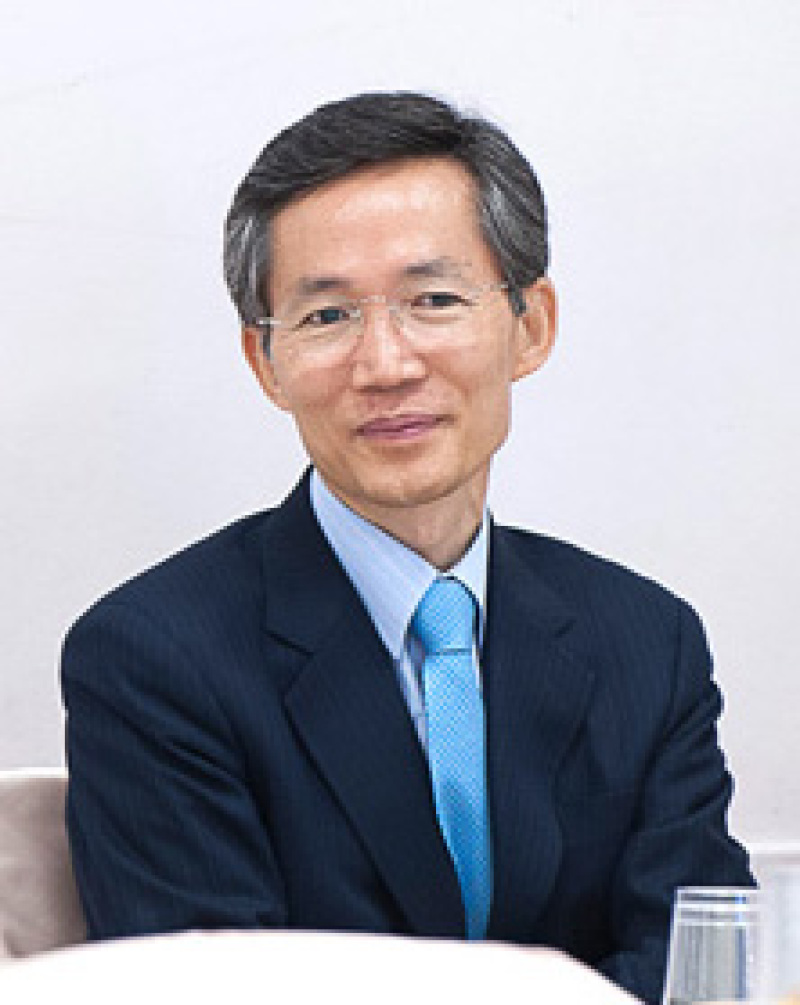
I sometimes long for silence. Words are important to pastors because they live by words. But in the midst of continuous preaching and conversing with people, there are times I long for silence. Among different types of Sabbath, there is a Sabbath of language. Silence is the Sabbath of language. Silence is resting from speaking. I have learned the importance of silence from various spiritual leaders. I have learned what silence is, how importance silence is, and the benefits of silence. I have learned how to be silent.
Silence is God's language. In the beginning was silence. In the midst of silence, God created the heavens and the earth with His Word. Silence is the language that existed before language. Silence is the language of the nature and the universe. In the book of Psalm, David sang about the wordless language of silence. "Day to day pours out speech, and night to night reveals knowledge. There is no speech, nor are there words, whose voice is not heard. Their voice goes out through all the earth, and their words to the end of the world" (Psalm 19:2-4). Language that springs up from deep silence is the language of life. Language that comes out of deep silence creates a beautiful future. It helps to form a loving relationship.
The reason I like silence is because silence begets stillness. The spirit likes stillness. Stillness fattens the spirit. This world is filled with noises. The noises make the spirit uneasy and aggravates fear. In contrast, there is quiet in heaven. At the moment Jesus enters in our hearts, the kingdom of God rests in us. When the kingdom of God comes, the spirit experiences stillness. Stillness begets peace. Stillness begets quiet joy. The spirit experiences supreme bliss in stillness.
Silence is cherishing. Silence is cherishing words. We cherish what's important to us. We cherish those we love. Words are important. Of course, not all words are important. Some words give wounds. Some words give pain and despair. In contrast, some words give healing. Some words comfort pain and give consolation. They help to find hope. The reason we cherish words is because the words are valuable. The good words that come out of silence have vitality and healing power. They have power to create good encounters. Those who looks forward to having a good day know how to cherish words. Cherishing is cultivating. We cultivate what we cherish. Those who cherish children, cultivates the children well. Those who cherish business, cultivates the business. Those who cherish church, cultivate the church. Those who cherish words, cultivate good words.
Silence is listening. We listen when we are silent. When we are silent, we are able to hear things that we couldn't hear before. Listening is wisdom. Those who listen live (Jn 5:25). Those who listen find wisdom (Lk 2:47). Those who listen understand (Matt 13:23). Those who listen obey (1 Sam 15:22). Those who listen eat what is good and find enjoyment (Is 55:2). Listening is gaining. When we listen well, we gain the heart of God and men. We like those who listen well more than those who speak well.
Silence is ruling. Silence is ruling over the tongue. Silence is ruling over the inner noise of ourselves. When we are silent, we are able to control our emotions well. We are able to control our greed, jealousy, and unhealthy anger. Our emotions change frequently. Emotions are important but we must not rely on our emotions that changes frequently. We must not be controlled by our emotions that change according to circumstances. An immature person fluctuates according to one's emotions (Eph. 4:14). On the other hand, a mature person understands one's emotions, knows how to control and overcome one's emotions. In addition, a wise person knows how to create good emotions through silence.
Silence is discernment. Silence is not a discipline of not speaking. Just as Paul's exhortation, silence is allowing our speech to be gracious and seasoned with salt (Col 4:6). Too much salt is salty and too little salt is tasteless. A balanced amount of salt is needed for our body. It is through the discipline of silence that we learn to discern "unnecessary words, useless words, and harmful words.' Through the discipline of silence, we learn to discern "necessary words, useful words, and beneficial words.'
Silence is like a rest symbol. Rest symbols are what make the music beautiful. There is no music without rest symbols. Rest provides us a space in life. Rest makes rhythm. During this summer, try to discipline yourself with a little silence. Have a time of Sabbath. Have a time of little rest by putting a comma in your life. Go on a journey for a day. May you experience more abundant life through silence.

Reverend Joshua Choon-Min Kang is the senior pastor of New Life Vision Church, located in Los Angeles. This is one of the weekly letters he writes to his congregation. For the original, visit www.nlvc.org.



















